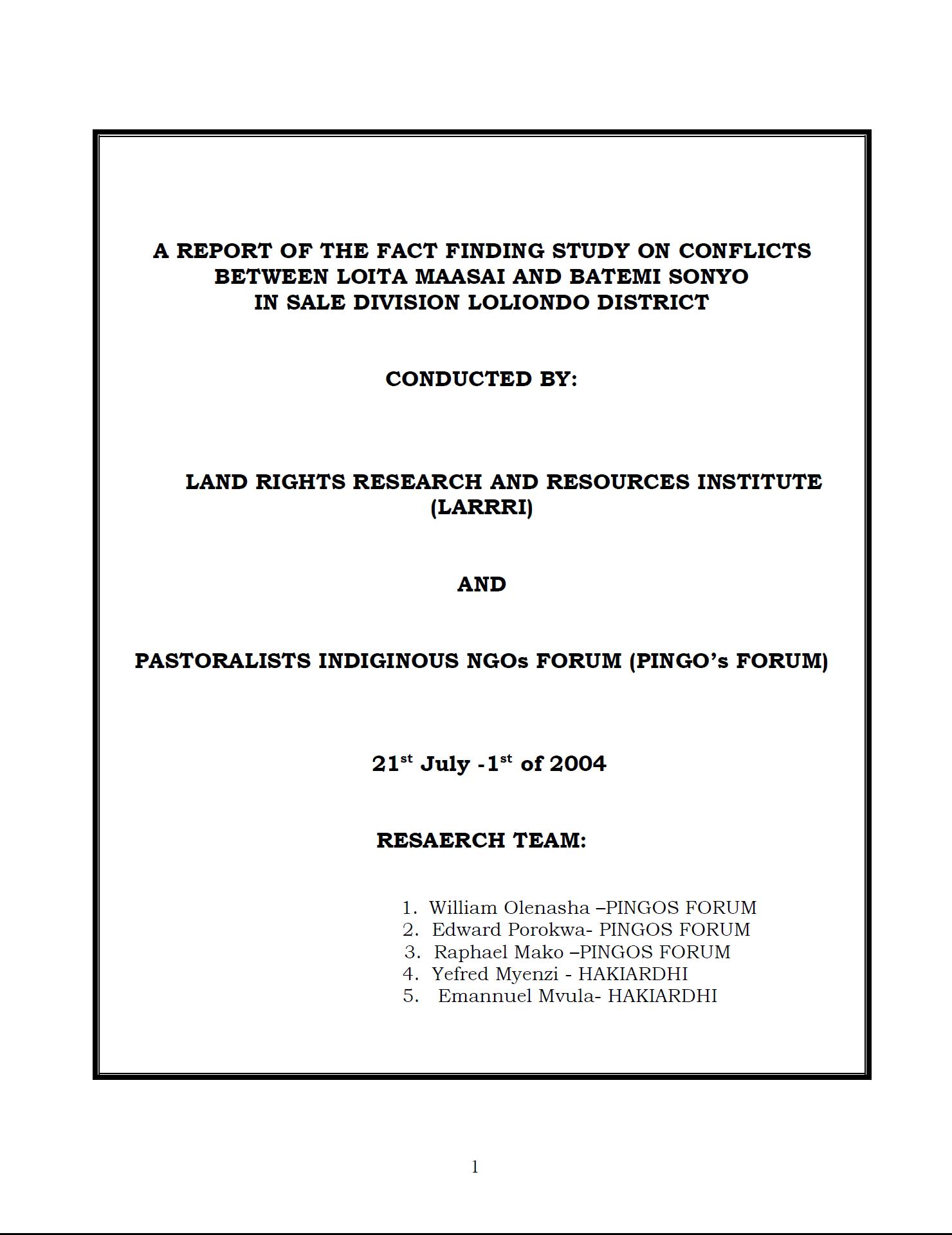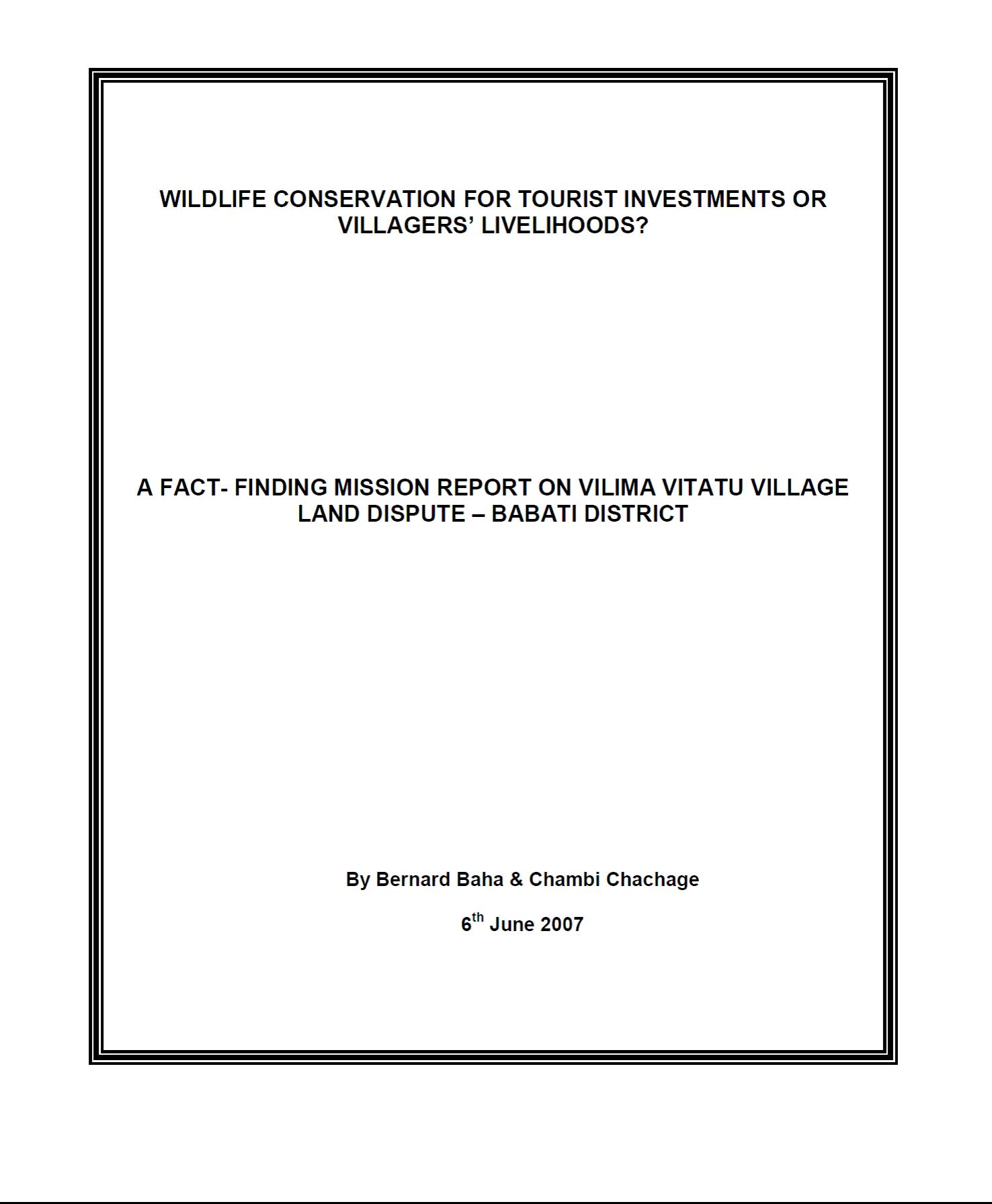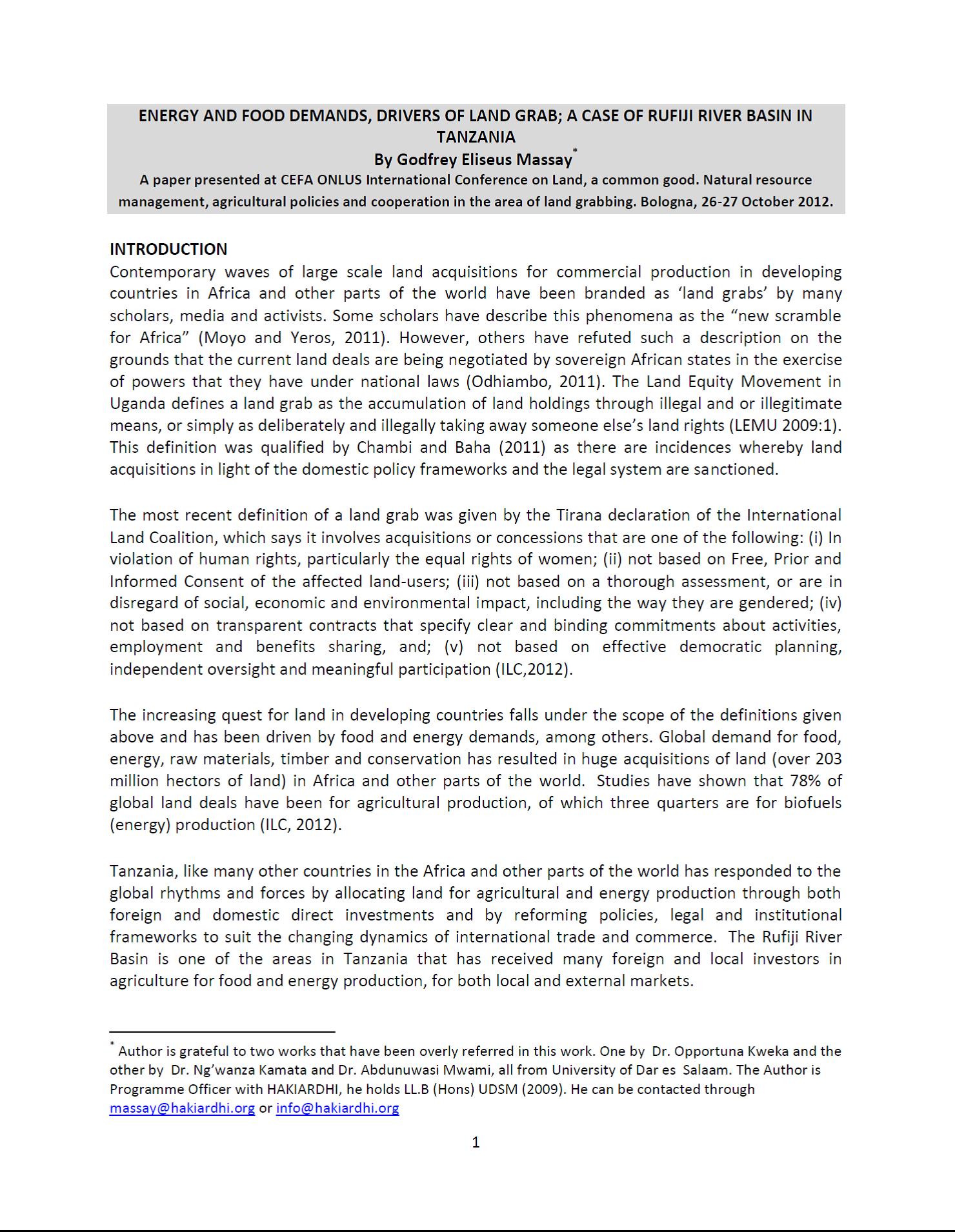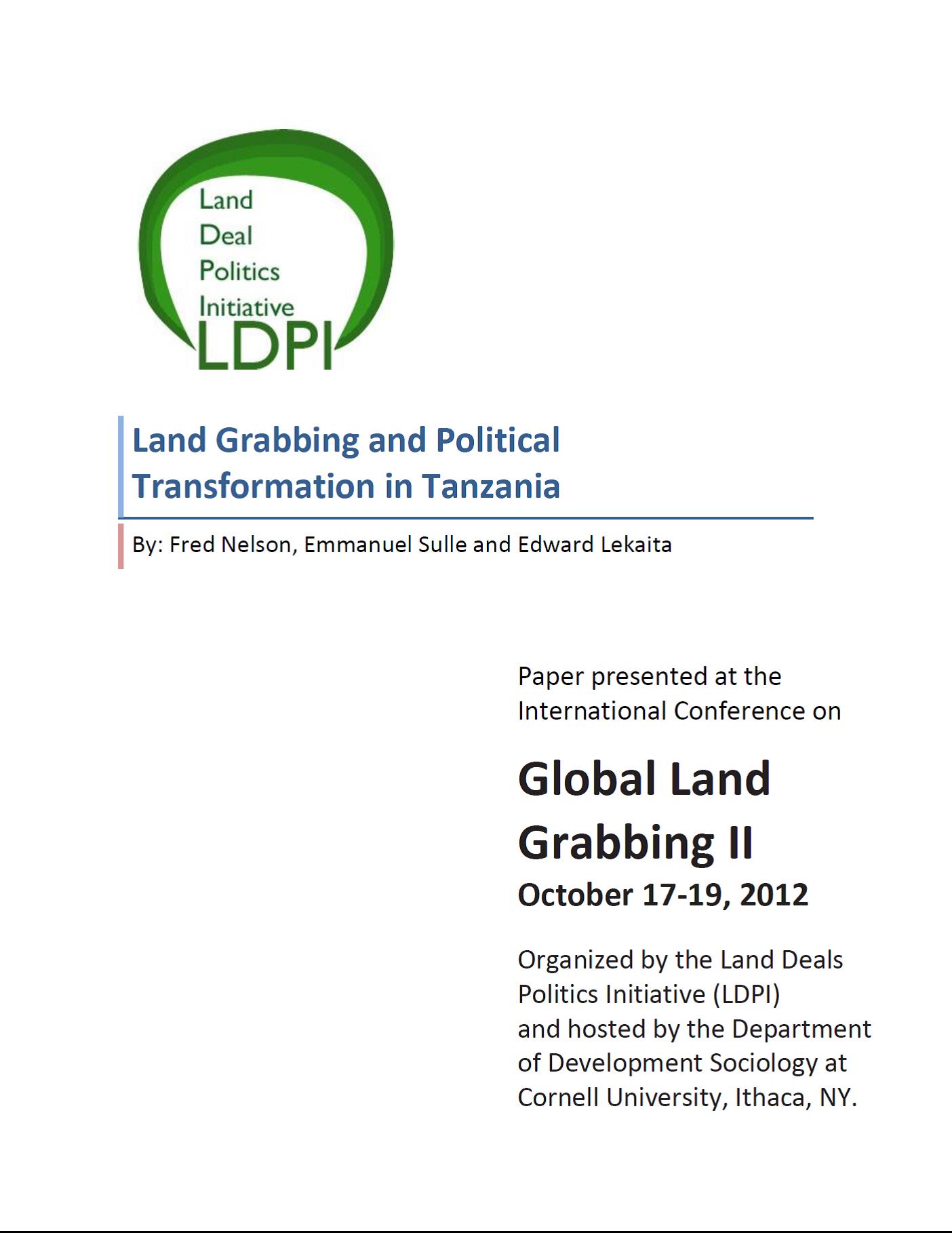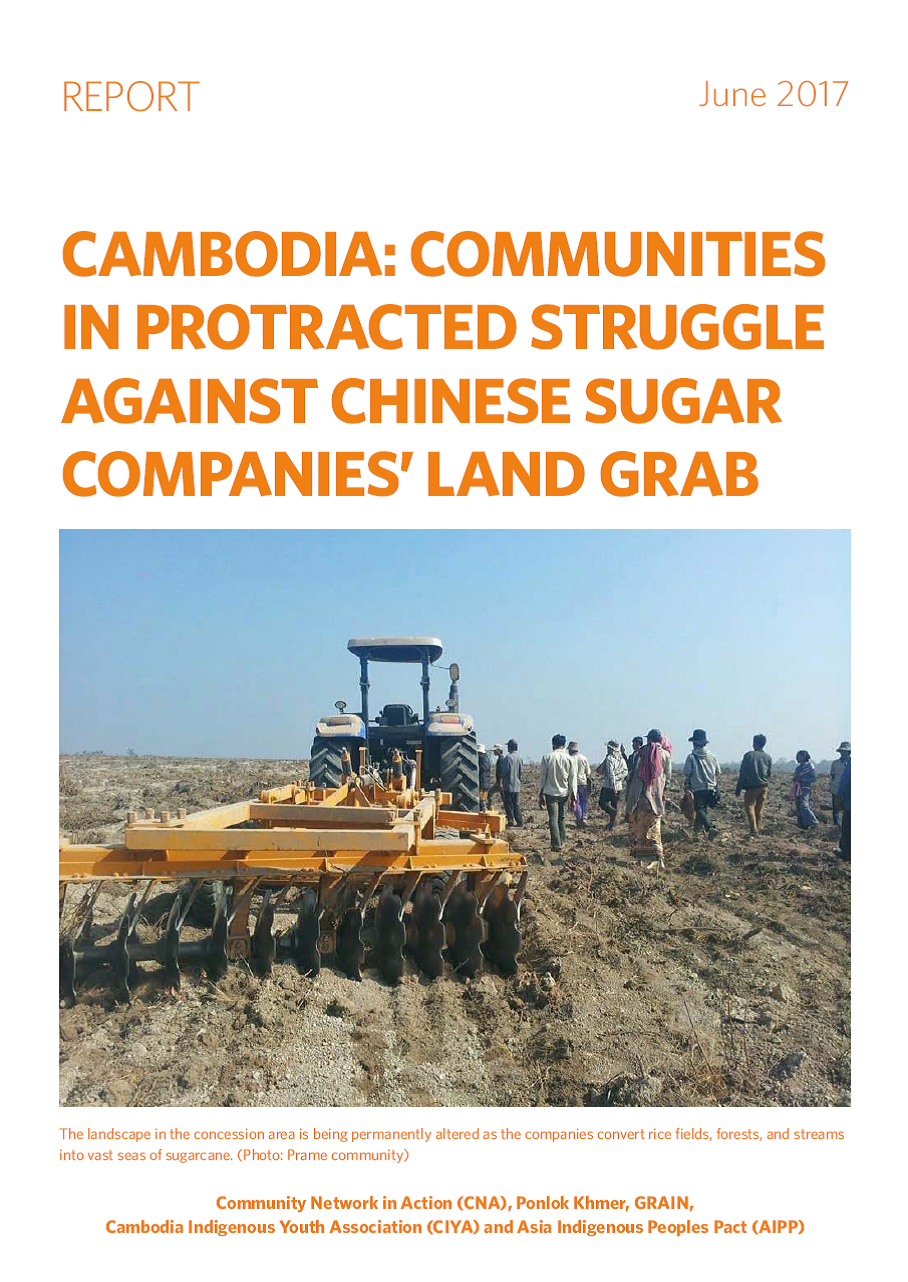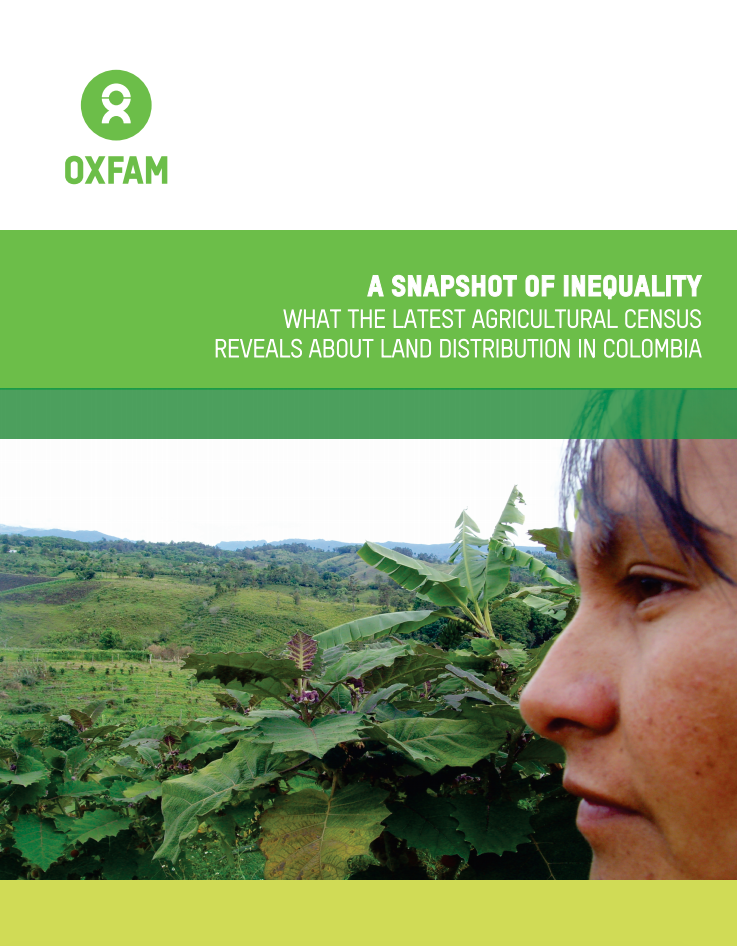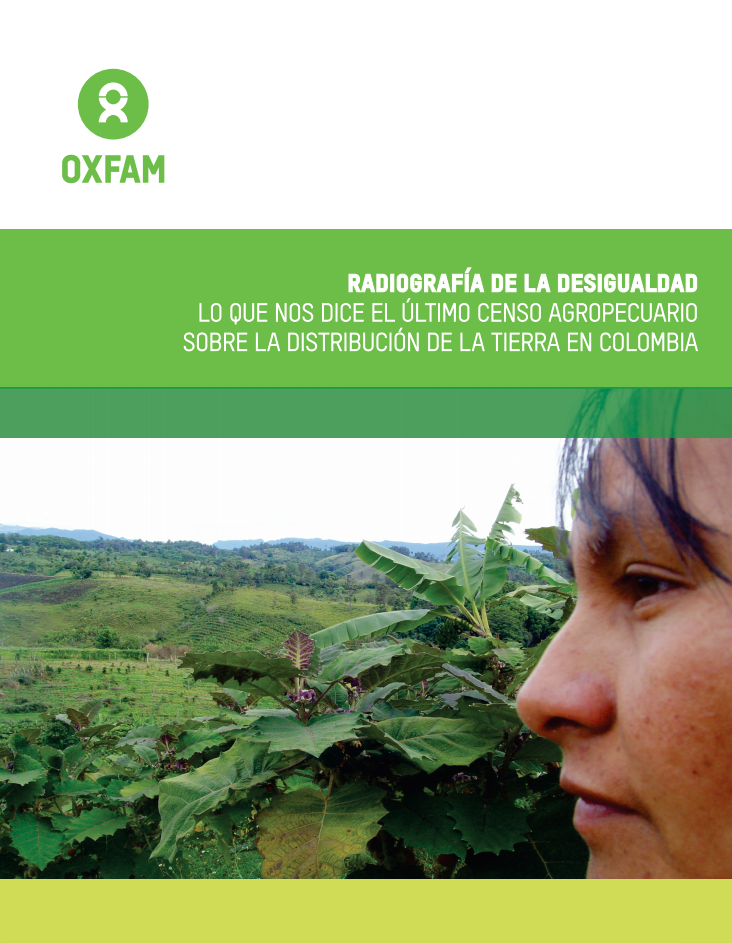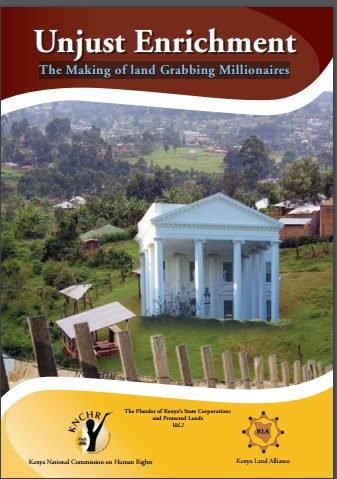A Report of a Fact Finding Study on Conflicts between Loita Maasai and Batemi Sonyo ni Sale Division Loliondo District
The conflict for which the research team has taken immediate measures to find its causes and give recommendations for its complete arrest, took place from the 1st-14th July 2004 in the frontiers of Engusero Sambu and Kisangiro villages, in the divisions of Loliondo and Sale, respectively, both of Ngorongoro District. Ngorongoro is the third division in the District. One person was killed and another injured in the subject fighting.

